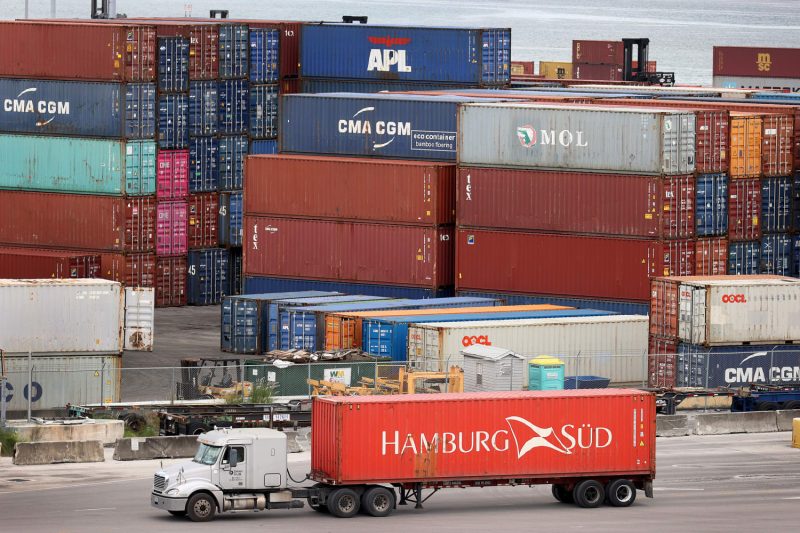
Race Against Time: Retailers Rush to Redistribute Billions in Cargo Ahead of East Coast Dockworker Strike
In recent days, the impending strike by East Coast dockworkers has thrown the retail industry into a frenzy, forcing retailers to quickly devise contingency plans to address the potentially catastrophic disruptions to their supply chains. With billions of dollars’ worth of cargo at stake, retailers are under immense pressure to find alternative solutions to avoid severe financial losses. The strike threat has triggered a domino effect across various sectors that rely on the timely movement of goods through these crucial ports. The situation is critical, and retailers from large corporations to small businesses are scrambling to mitigate the impact of the impending labor dispute.
One of the primary concerns for retailers is the potential delays in receiving goods essential for their operations. The strike threatens not only to disrupt the flow of incoming shipments but also to create logjams at the ports, preventing the timely unloading and distribution of merchandise. Any prolonged disruption could lead to empty shelves, stock shortages, and ultimately dissatisfied customers. In response, retailers are exploring various options, from rerouting shipments to accelerating deliveries, in an effort to maintain their supply chains and meet customer demands.
The uncertainty surrounding the strike has also prompted retailers to review their inventory management strategies. In anticipation of potential shortages, many are stockpiling essential items to ensure they have an adequate supply during the disruption. This approach, however, comes with its own set of challenges, as excessive inventory can tie up capital and storage space, leading to additional costs for retailers already grappling with the prospect of lost revenue from disrupted operations.
Furthermore, the strike threat has highlighted the vulnerabilities in the global supply chain that many retailers rely on. The dependence on a complex network of suppliers, manufacturers, and logistics providers leaves retailers exposed to disruptions at various points in the chain. The impending strike serves as a stark reminder of the need for greater resilience and flexibility in supply chain management to adapt to unforeseen events that can have far-reaching consequences for businesses.
As retailers navigate the challenges posed by the looming strike, collaboration and communication with stakeholders across the supply chain will be crucial. By working closely with suppliers, carriers, and logistics partners, retailers can better coordinate efforts to mitigate the impact of the disruption and identify alternative solutions to keep their operations running smoothly. Transparent communication with customers will also be essential to manage expectations and provide updates on any potential delays or disruptions in service.
In conclusion, the threat of a strike by East Coast dockworkers has thrown the retail industry into disarray, forcing retailers to act swiftly to protect their supply chains and operations. The widespread implications of a prolonged disruption highlight the need for retailers to enhance their supply chain resilience and adaptability to navigate unforeseen challenges effectively. As the situation continues to unfold, retailers must remain agile and proactive in their response to ensure business continuity and customer satisfaction in the face of impending turmoil.
